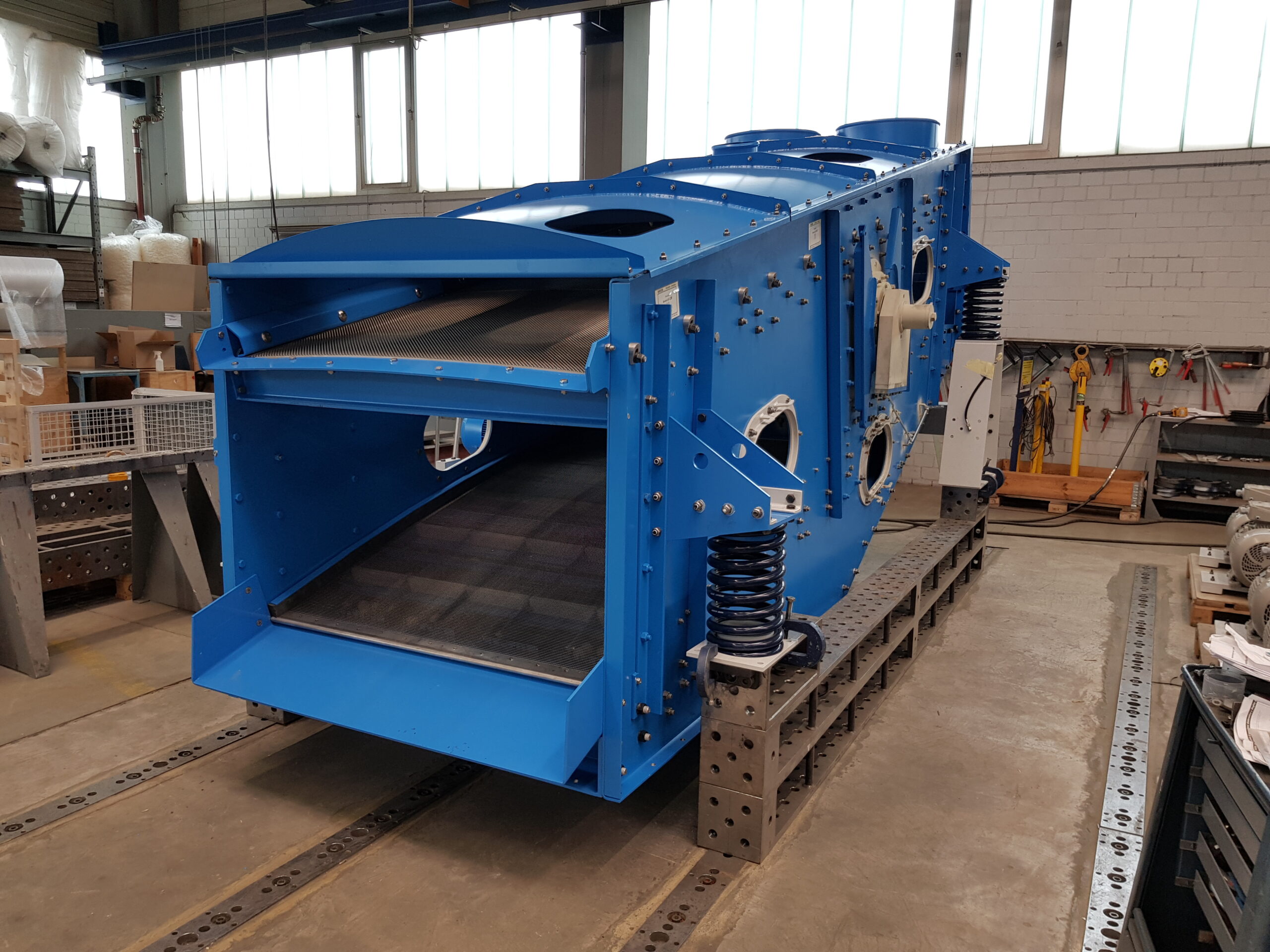
With consistent steps, Haver & Boecker Niagara continues to make its contribution to the global food security: We are a part of the biggest sulphate of potash (SOP) project in Western Australia. There is currently no SOP production in Australia and our customer aims to produce the high yield premium SOP fertilizer for both domestic and international markets – and we are supporting him through the development of the innovative Niagara vibrating screen in compact fertilizer plant.
Fertilizers are compounds of nutrients given to plants in order to promote growth. The three primary macronutrients essential for plant growth are nitrogen (N), phosphorus (P), and potassium (K). Agronomists have labelled potassium the regulator because of the key role it plays in controlling critical plant processes such as photosynthesis, protein formation, enzyme activation and starch formation. Potassium is vital for healthy plant metabolism and promotes the development of strong roots, stalks and stems. It is also understood to regulate the plant’s water content and expansion. Consequently, potassium increases the resilience of a plant to weather stressors such as variable temperatures, drought and high winds. Potassium also boosts disease and pest resistance and is considered as the quality nutrient because it enhances the appearance, taste, nutritional value and shelf life of the harvested crop.
Potash is available in various forms such as Potassium Chloride (KCl or MOP), Potassium Sulphate (K2SO4 or SOP), Potassium Nitrate (KNO3) or Sulphate of Potash Magnesia (SOPM). Sulphate of Potash (SOP) is not a naturally occurring mineral and primary SOP production requires extracting potassium and sulphate ions from naturally occurring complex ores or brines, via evaporation and/or chemical methods. SOP is superior to Potassium Chloride (MOP) because it does not contain chloride, which has a toxic impact on many food plants, especially fruits and vegetables. When MOP is used, soils have increasing levels of chloride salt, which affect plant yields. As chloride-free fertilizer enhances plant health, demand for SOP is increasing.
Our team at Haver & Boecker Niagara realized this demand for this industry and adapted our processing technology to process SOP in the booth – most sustainable and profitable way. Throughout the decades, Haver & Boecker Niagara has developed special processing solutions that grant high production rates, improved material quality and low maintenance intervals. The Niagara T-Class MD1400x4500-C 2-deck vibrating screen developed for this project stands out not only for ensuring these advantages for the potash operator, but also for its specific application in the compact fertilizer plant, where the fertilizers are prepared for the packaging process. “Potash fertilizers belongs to the group of the mineral compound fertilizers. This complex fertilizer is mainly produced in the manufacturing processes of compaction. In this process, the components are granulated with additives and water in the first stage and compacted under high pressure in the second stage. The resulting granules are then classified and, depending on the screening result, re-crushed and granulated again. Due to the high screening efficiency, unnecessary loss of productivity is avoided at this point.”, explains the fertilizer processing expert Francisco dos Reis.
The Niagara T-Class MD1400x4500-C supports the fertilizer operation exactly in the stage of compaction. Implementing it there our customer will be able to process more than 60 tones sulphate of potash per hour with the particle size 0-25 mm (Screen feed). The machine is designed especially to realize the vison of our customer to be a low cost, long life, high margin and sustainable potash producer, adds the project manager Francisco dos Reis.
We are glad to be a part of such projects that bring us a step closer to the global food security. Through the development of innovative processing solutions, fertilizer producers are able to empower farmers to produce more with less. Applying more knowledge per acre is the mantra of farming worldwide. Innovative solutions, long-established knowledge, modern fertilizer products, real-time data and modern machinery have laid the groundwork for more precise application of fertilizer. These advancements lead to improved yields and lower environmental impact. Our cutting-edge Niagara processing technology can increase the earth’s fertility through high-quality fertilizer production and support sustainable food sourcing.
komm zurück
Unser globales Netzwerk an Erfahrungen befähigt uns, sogar für ein einzigartiges Problem eine Lösung zu finden.
Florian Festge,